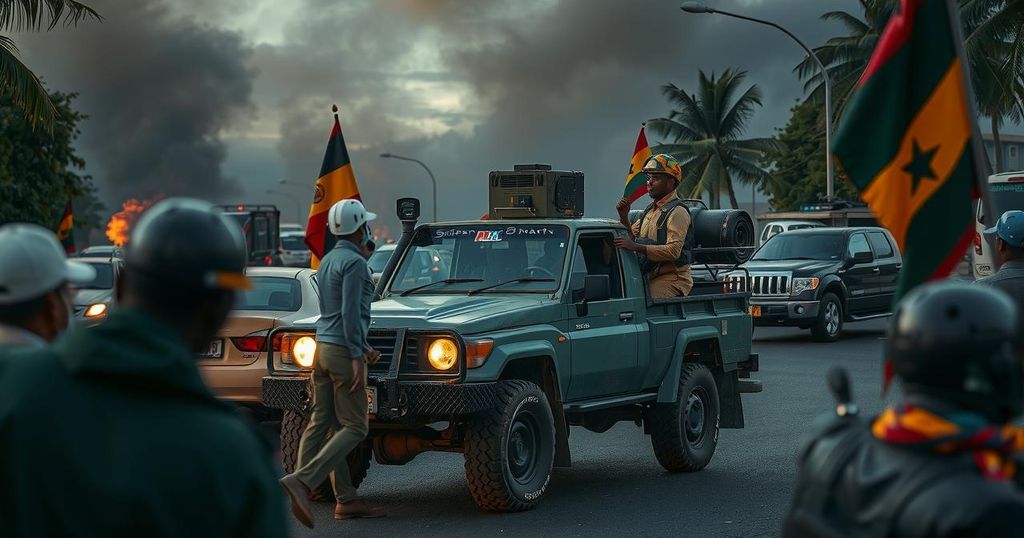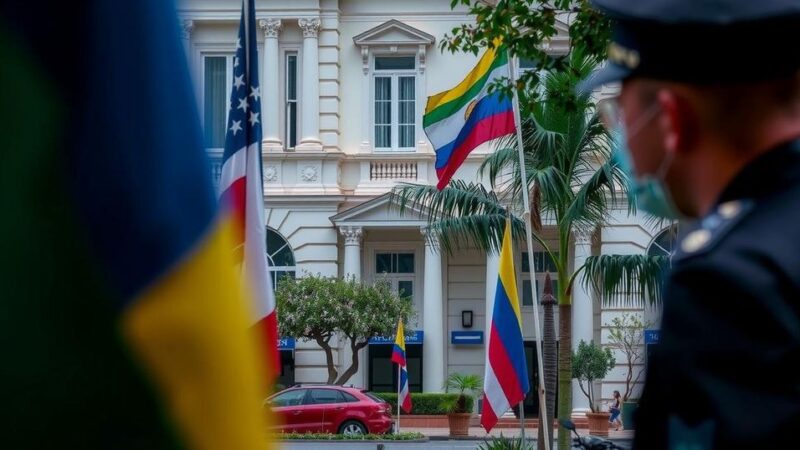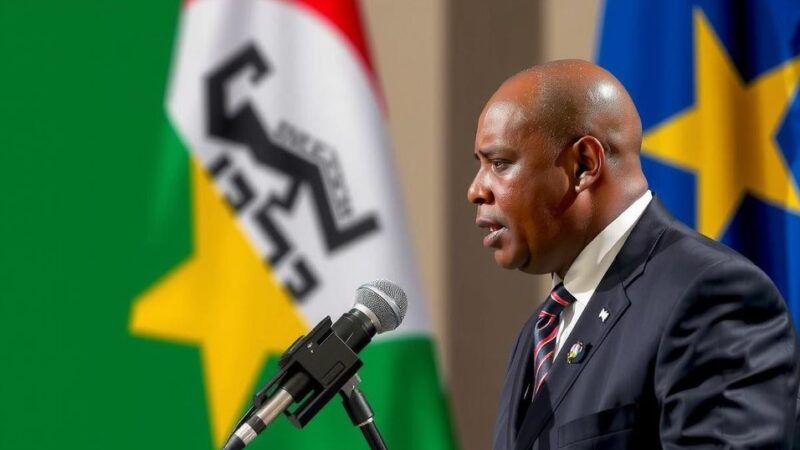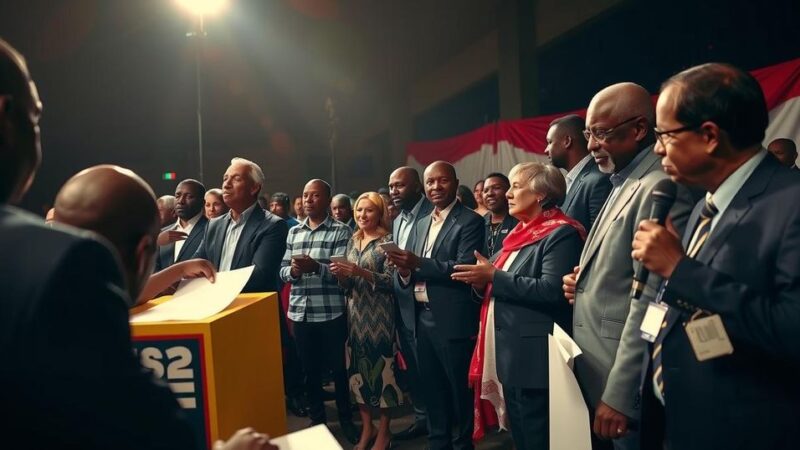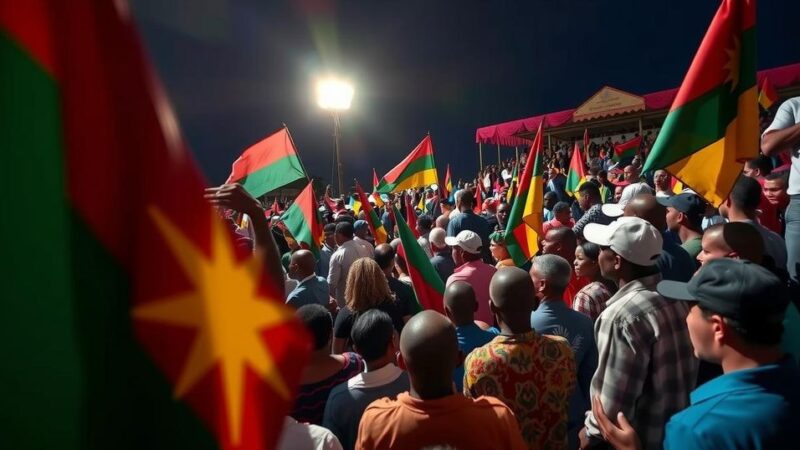A military vehicle in Maputo struck a woman during protests against alleged electoral fraud post-elections, which resulted in injuries but not critical condition. Protests have escalated following the contentious elections where Frelimo party claimed an overwhelming win over opposition leader Mondlane. Amidst rising violence and fatalities among protesters, international communities have condemned these actions, calling for accountability from the Mozambican government.
On Wednesday, a military vehicle in Maputo, Mozambique, struck a woman amidst protests following the disputed elections held on October 9. The vehicle, part of the armed forces, barreled into a barricade set up by demonstrators opposing the results, which claimed the ruling Frelimo party had secured over 70% of the vote. Reports indicate that the woman sustained head injuries, though her condition was stabilized at the hospital.
The incident has drawn widespread condemnation and sparked outrage amongst the populace, who have been protesting in response to perceived electoral fraud. The opposition leader, Venâncio Mondlane, shared his view that he won the election but garnered only 20.3% according to official results. The armed forces subsequently expressed their regret and promised to investigate the incident thoroughly while taking responsibility for the woman’s medical expenses.
Amid these demonstrations, two protesters were killed by police in Nampula, leading to further tensions as the population calls for change and accountability. Between calls to action by Mondlane, supporters have organized resistance, with gatherings that reflect both anger and a sense of community, symbolized through shared meals and expressions of cultural identity.
Tragically, Human Rights Watch notes that at least 10 children have lost their lives due to security intervention in protests since late October, with reports indicating a wider pattern of violence against opposition figures. This situation has generated international concern, prompting a joint statement from several embassies condemning the violence against civilians and calling for justice.
In summary, Mozambique currently faces a volatile political climate marked by civilian unrest, military actions against protesters, and allegations of electoral misconduct. The government’s response to protests and its accountability will be crucial in addressing the growing discontent among its citizens.
Mozambique has been under the governance of the Frelimo party since its independence in 1975. The recent presidential election has been marred by allegations of electoral fraud, with opposition candidates disputing the legitimacy of the results. The reaction from the populace has been a series of sustained protests highlighting their dissatisfaction with corruption and a desire for political reform. Human rights violations, including violence against protesters, have become significant concerns, drawing criticism from both local advocacy groups and international bodies as they call for accountability and protection of civil rights.
The events occurring in Mozambique highlight a critical intersection of political unrest, public dissent, and governmental response to civil demonstrations. With military vehicles injuring civilians and police brutality resulting in fatalities, the need for reform and a commitment to the protection of human rights is evident. As protests evolve, the pressure on the Mozambican government to address allegations of electoral fraud and foster greater political freedom intensifies, underscoring the urgency for significant change.
Original Source: www.theguardian.com
